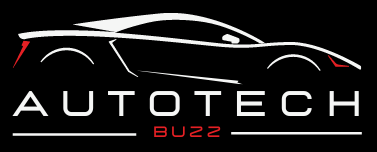Comparative Analysis of EV Manufacturers: Who’s Leading the Market?
The electric vehicle (EV) market is becoming increasingly competitive, with numerous manufacturers vying for dominance as consumer demand for sustainable transportation solutions rises. In this comparative analysis, we will explore key players in the EV landscape, their market positions, innovations, and strategies that set them apart. As of 2024, the following manufacturers stand out as leaders in the electric vehicle market.
1. Tesla
Market Position: Tesla remains the frontrunner in the global EV market, known for its innovative technology and strong brand loyalty. The company captured nearly 20% of the global EV market share in 2023.
Innovations: Tesla’s advancements in battery technology, particularly with its proprietary 4680 cells, are set to improve energy density and reduce costs. The company’s Autopilot and Full Self-Driving (FSD) features continue to push the boundaries of autonomous driving.
Strategy: Tesla focuses on direct-to-consumer sales, reducing reliance on traditional dealership networks. Its extensive Supercharger network enhances the EV ownership experience by addressing charging infrastructure concerns.
2. Volkswagen Group
Market Position: Volkswagen is one of the largest automakers globally and has made significant strides in the EV segment, aiming for a market share of around 10% by 2025. The company is transitioning its entire portfolio to electric vehicles under its “Accelerate” strategy.
Innovations: The ID. series, including the ID.4 and ID. Buzz, showcases Volkswagen’s commitment to design and technology. The company is investing in the development of its own battery production facilities and aims to achieve a fully sustainable supply chain.
Strategy: Volkswagen emphasizes scalability and affordability, aiming to offer a range of EVs at various price points. Partnerships with charging infrastructure providers aim to enhance consumer convenience.
3. BYD (Build Your Dreams)
Market Position: BYD has emerged as a dominant player in the Chinese market and is rapidly expanding globally. In 2023, BYD surpassed Tesla in total vehicle sales, showcasing its strength in both EV and hybrid segments.
Innovations: BYD has developed its own Blade Battery technology, which improves safety and energy density. The company also offers a diverse lineup, including buses, trucks, and passenger vehicles.
Strategy: BYD’s vertical integration approach allows it to control battery production, reducing costs and ensuring quality. The company is expanding its presence in markets such as Europe and North America.
4. Rivian
Market Position: As a newcomer to the EV market, Rivian has gained attention with its all-electric R1T pickup and R1S SUV. The company’s focus on adventure-oriented vehicles has attracted a niche market.
Innovations: Rivian’s R1T features innovative design elements, such as a gear tunnel and camp kitchen, setting it apart from traditional trucks. Its “Rivian Adventure Network” aims to provide dedicated charging stations for outdoor enthusiasts.
Strategy: Rivian’s focus on a lifestyle brand and direct sales model allows it to build strong relationships with consumers. The company is also committed to sustainability, using recycled materials in its vehicles.
5. Ford
Market Position: Ford has made significant investments in electric vehicles, aiming to capture a substantial share of the market. The launch of the all-electric Ford F-150 Lightning is a critical move in tapping into the lucrative pickup truck segment.
Innovations: Ford is leveraging its expertise in truck manufacturing while integrating advanced technologies in its EVs. The company’s partnership with Rivian and development of the Ford Blue Oval Charging Network enhance its EV offerings.
Strategy: Ford’s strategy focuses on electrifying its most popular models while expanding its EV lineup. The company plans to invest $50 billion in EV development by 2026, reflecting its commitment to becoming a leader in the electric vehicle space.
Conclusion
The electric vehicle market is characterized by rapid growth and fierce competition, with various manufacturers adopting distinct strategies to secure their positions. Tesla continues to lead with its technological innovations and strong brand recognition, while traditional automakers like Volkswagen and Ford are making significant strides in EV production. Meanwhile, newcomers like Rivian and established players like BYD are challenging the status quo with innovative products and sustainability-focused strategies. As the landscape evolves, these manufacturers will play a crucial role in shaping the future of electric mobility.
Key Takeaways:
- Tesla: Leader in market share and technology; focuses on direct sales and charging infrastructure.
- Volkswagen: Major automaker transitioning to EVs; emphasizes scalability and affordability.
- BYD: Dominates in China and expanding globally; known for vertical integration and diverse offerings.
- Rivian: Niche focus on adventure vehicles; strong lifestyle branding and direct consumer relationships.
- Ford: Leveraging existing popularity of trucks; significant investments in EV development.
The competition in the electric vehicle market will likely intensify as consumer preferences shift and technology continues to advance, making it an exciting space to watch in the coming years.

